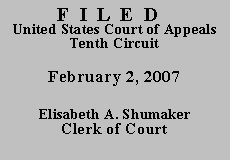

| UNITED STATES OF AMERICA,
Plaintiff-Appellee, v. ANTONIUS MARIA HEIJNEN, Defendant-Appellant. |
|
Appellant was convicted by a jury of the above fraud-related charges in March 2005. The scheme involved his sale of fraudulent investments to investors, who were promised amazing returns on their money when the investment was sold to yet another party at a profit. The government proved to the jury's satisfaction that no legitimate commercial investments were ever purchased. Investors gave money to appellant, who deposited it in his bank accounts and repaid investors out of these funds to make the scheme appear legitimate.
Appellant maintains his innocence, arguing that the proceedings were fraudulent and that his conviction and sentence are unlawful. Among his many arguments, these four are not frivolous on their face: (1) that the evidence is insufficient to support his conviction, (2) that the jury instructions were erroneous, (3) that defense witnesses were withheld from the jury, and (4) that the calculations used to support some of the sentence enhancements were never found by the jury. We nevertheless reject these arguments because they are unsupported by legal argument or authority or by any citations to the extensive record of the proceedings.
First, appellant's issues are not supported by any developed legal argument or authority, and we need not consider them. See Phillips v. Calhoun, 956 F.2d 949, 953-54 (10th Cir. 1992). Although appellant asserts that he was held in a city jail and lacked access to legal materials, Aplt. Br. at 30, he voluntarily waived his right to counsel long before trial and did not object when the district court granted standby counsel's motion to terminate her appointment, filed after sentencing, because "Heijnen has stated that he does not want standby counsel," R., Doc. 197. "Standby counsel is the equivalent of library access." United States v. Cooper, 375 F.3d 1041, 1052 (10th Cir. 2004). "When a prisoner voluntarily, knowingly and intelligently waives his right to counsel in a criminal proceeding, he is not entitled to access to a law library or other legal materials." Id. Appellant is therefore not excused from supporting his arguments with legal authority.
In addition, "[w]e have been abundantly clear that a party before this Court bears the responsibility of tying the relevant facts to the record in order to carry the burden of proving error. This Court has no responsibility to sift through the record to find support for [appellant's] arguments." United States v. Stephenson, 452 F.3d 1173, 1182 n.4 (10th Cir. 2006) (citation and quotation omitted); see also United States v. Fortier, 242 F.3d 1224, 1230 (10th Cir. 2001) ("The lack of evidentiary support precludes review of [appellant's] claim."), superseded by statute on other grounds, as recognized in United States v. Bolden, 368 F.3d 1032, 1036 n.4 (8th Cir. 2004); United States v. Rodriguez-Aguirre, 108 F.3d 1228, 1237 n.8 (10th Cir. 1997) ("In the absence of essential references to the record in a party's brief, the court will not sift through the record to find support for the claimant's arguments." (quotation omitted)). Because appellant did not provide any citations to the record to support his arguments, we reject his arguments outright.
Appellant's other arguments are frivolous on their face, and we reject them without discussion.
We deny appellant's request that we consolidate this appeal with No. 05-2097 and incorporate his briefs from that appeal by reference because that appeal was dismissed in January 2006. Further, incorporation of documents by reference is disfavored because it allows litigants to circumvent page limitations and complicates the judges' responsibilities. See, e.g., Gaines-Tabb v. ICI Explosives, USA, Inc., 160 F.3d 613, 624 (10th Cir. 1998).
We deny appellant's request for an expedited reversal under Holmes v. South Carolina, 126 S. Ct. 1727 (2006).
Appeal No. 05-2114 is DISMISSED. The judgment in No. 05-2318 is AFFIRMED.
Entered for the Court
Chief Circuit Judge
*. After examining the briefs and appellate record, this panel has determined unanimously that oral argument would not materially assist the determination of this appeal. See Fed. R. App. P. 34(a)(2); 10th Cir. R. 34.1(G). The case is therefore ordered submitted without oral argument. This order and judgment is not binding precedent, except under the doctrines of law of the case, res judicata, and collateral estoppel. It may be cited, however, for its persuasive value consistent with Fed. R. App. P. 32.1 and 10th Cir. R. 32.1.